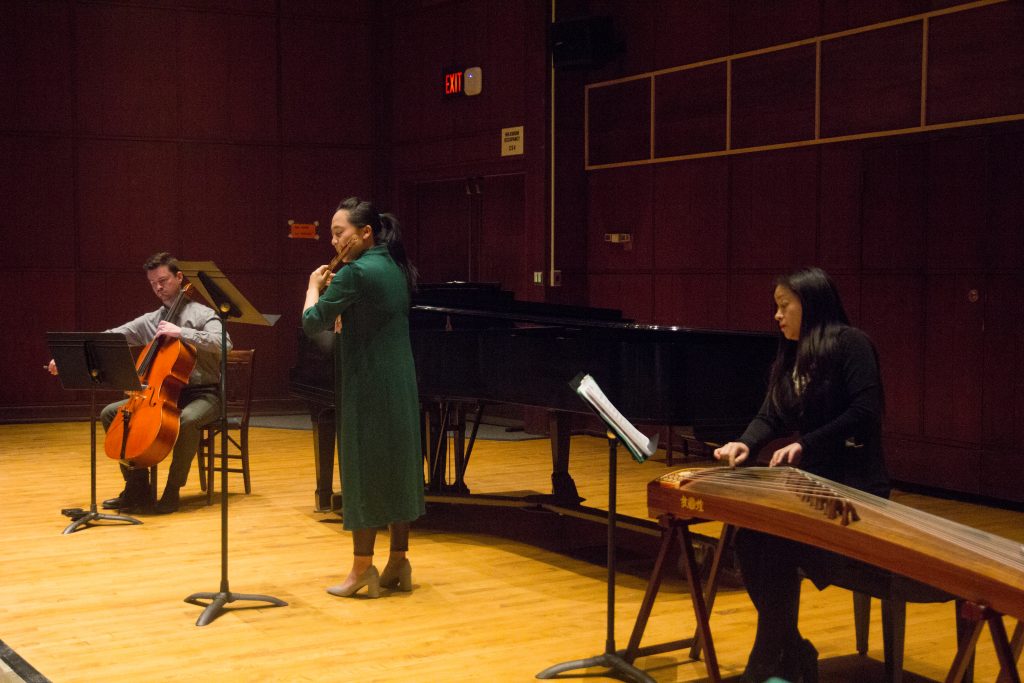On Thursday night, March 7, Binghamton University’s Confucius Institute of Chinese Opera transformed Casadesus Recital Hall into a platform of music from diverse cultures.
Yuxiao Chen, a bamboo flutist and visiting instructor of Chinese traditional music with the Confucius Institute of Chinese Opera, was the concert’s featured performer. Chen performed in Binghamton in the past two years. She participated in the “Eternal Moon” chamber performance debut in 2017 and the “One World Opera” in 2018. Chen’s résumé also extends across the globe, as she has participated in cultural performances in Beijing, Moscow and Berlin.
Carrie Buck, assistant to the director of the Confucius Institute of Chinese Opera, said that the decision to feature the bamboo flute in the concert stemmed from the plentiful instruments Chinese opera has to offer. The Confucius Institute wanted to focus on an iconic instrument of that collection.
“This is a great opportunity for us to showcase the traditional Chinese instruments to show that yes, we’re Chinese opera, but there’s a lot of different parts that go into Chinese opera and the bamboo flute is one of those parts, so that’s what started the whole idea to have a concert based on the bamboo flute,” Buck said.
Although Chen primarily performed with the bamboo bass flute, for the final piece, “The Tearful Westward Trek,” Chen performed with four separate types of bamboo flutes to signify the four acts of the song.
The pieces varied in the instruments that each employed. “Spring Scenery,” for example, featured an ensemble of four different musicians to create a melodious piece with constant rises and falls. The concert featured several pieces that were adapted for the use of Western instruments. Cellist Zach Sweet, a lecturer of music at BU, and flutist Jeanne Sperber, a lecturer of music at BU, accompanied Chen for some pieces. While Chen performed with the bamboo flute, Sperber played the Western flute. Some pieces, such as “Beautiful Evening,” a simple piece that narrates a peaceful scene among friends on an evening, were intended for the use of Western instruments since they were modified to accommodate the cello and the Western flute.
According to Buck, this merging of music and culture was one of the goals of the event.
“[It’s] being able to show people, here’s the Western and the Eastern, but if you blend them you can create something even more and cross that cultural bridge,” she said.
Buck said the Confucius Institute deliberately puts a spotlight on Chinese music, since other aspects of Chinese culture that are characteristic of China often overshadow the culture’s music.
“People hear about traditional calligraphy or painting, but the music side, they may not know as much about,” she said. “The bamboo flute has such a unique sound that you can’t replace it in another instrument, the timbre is just so unique.”



